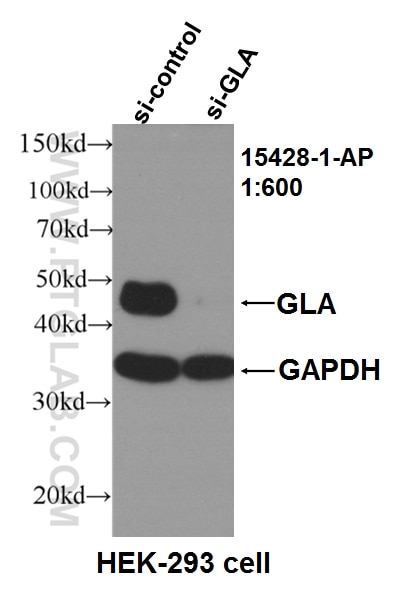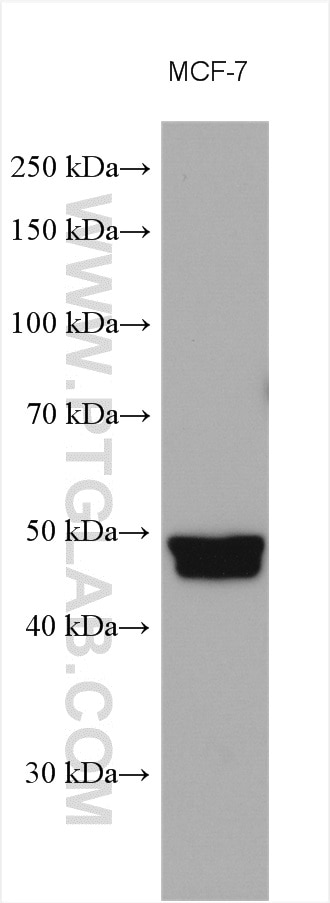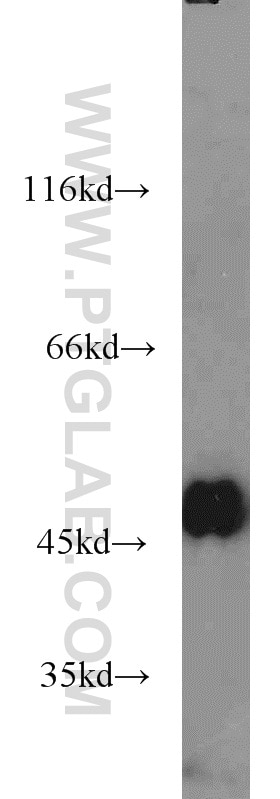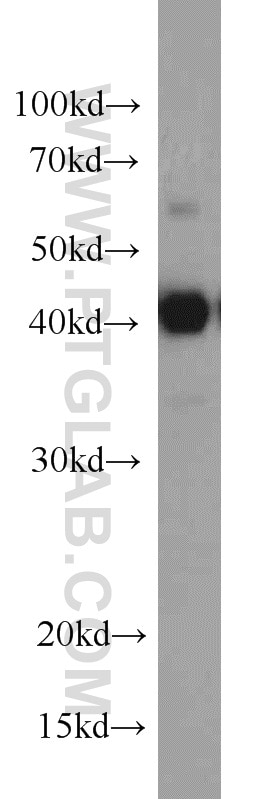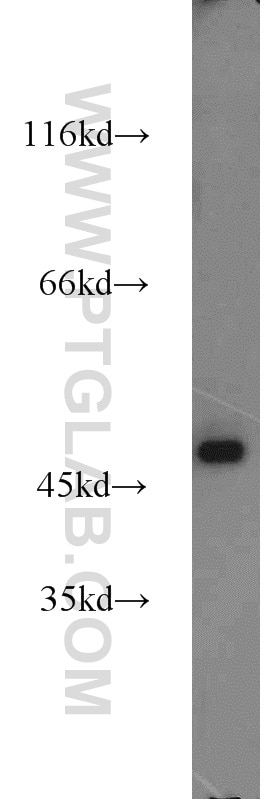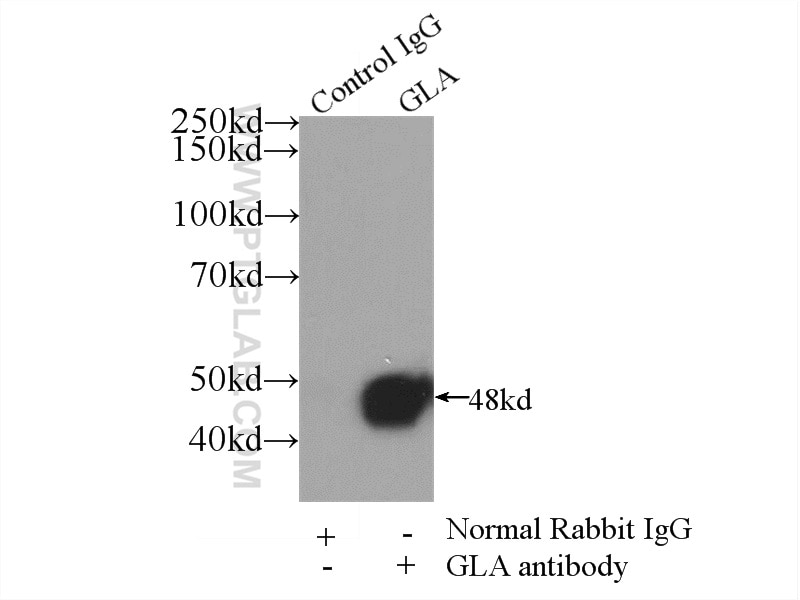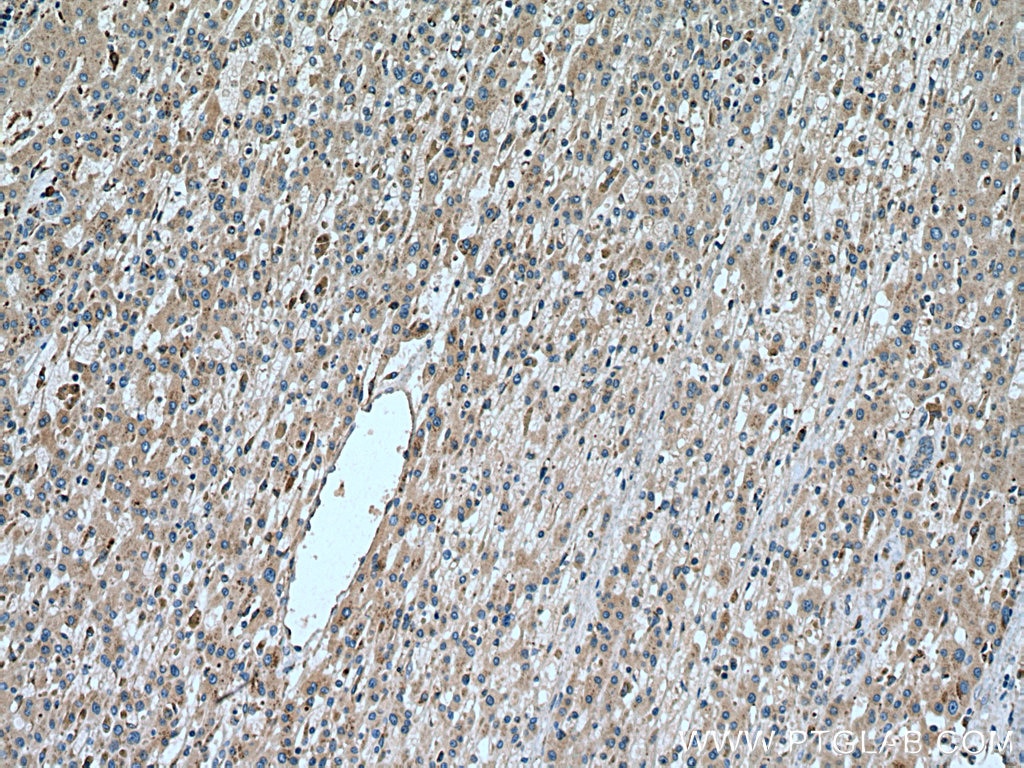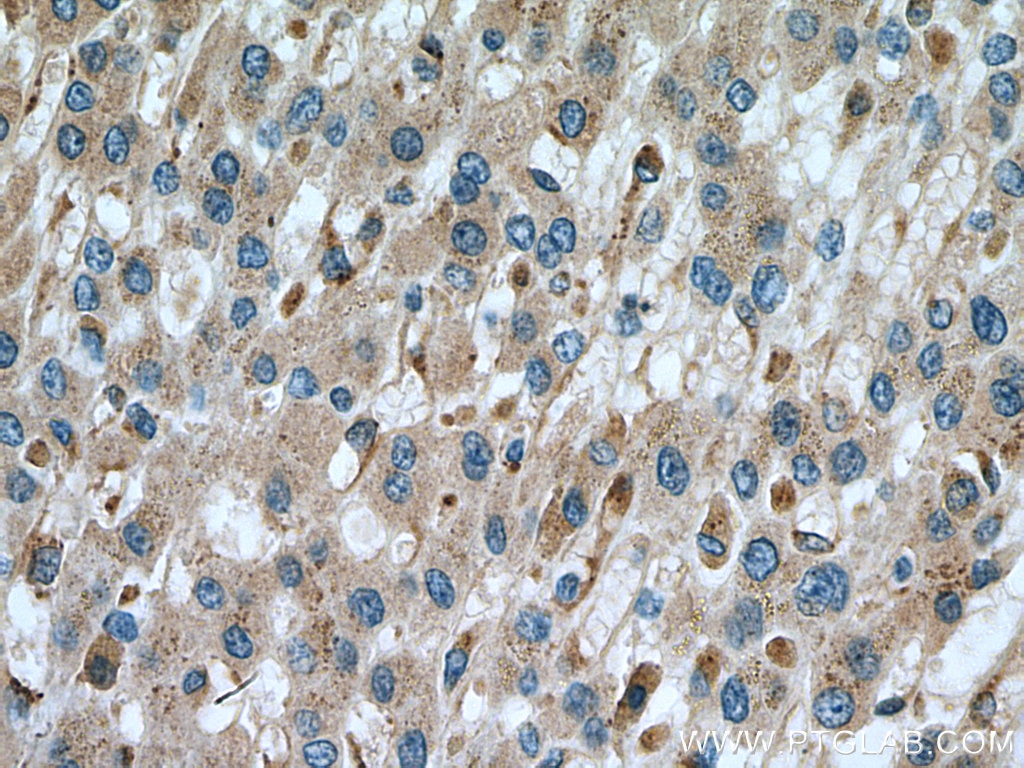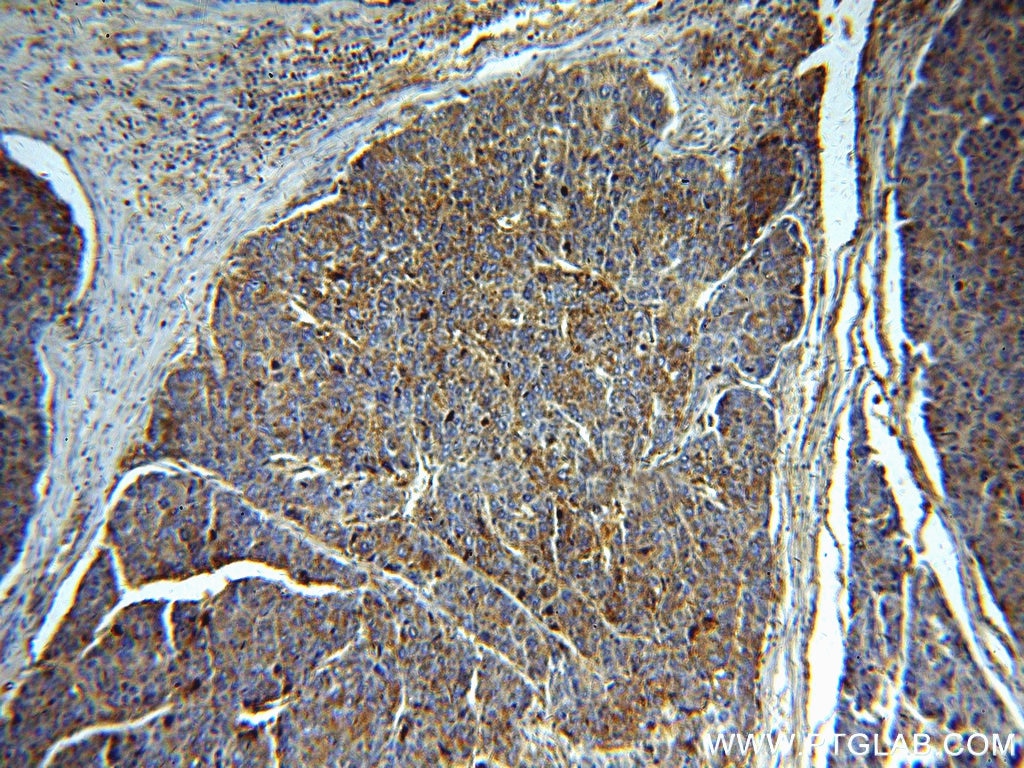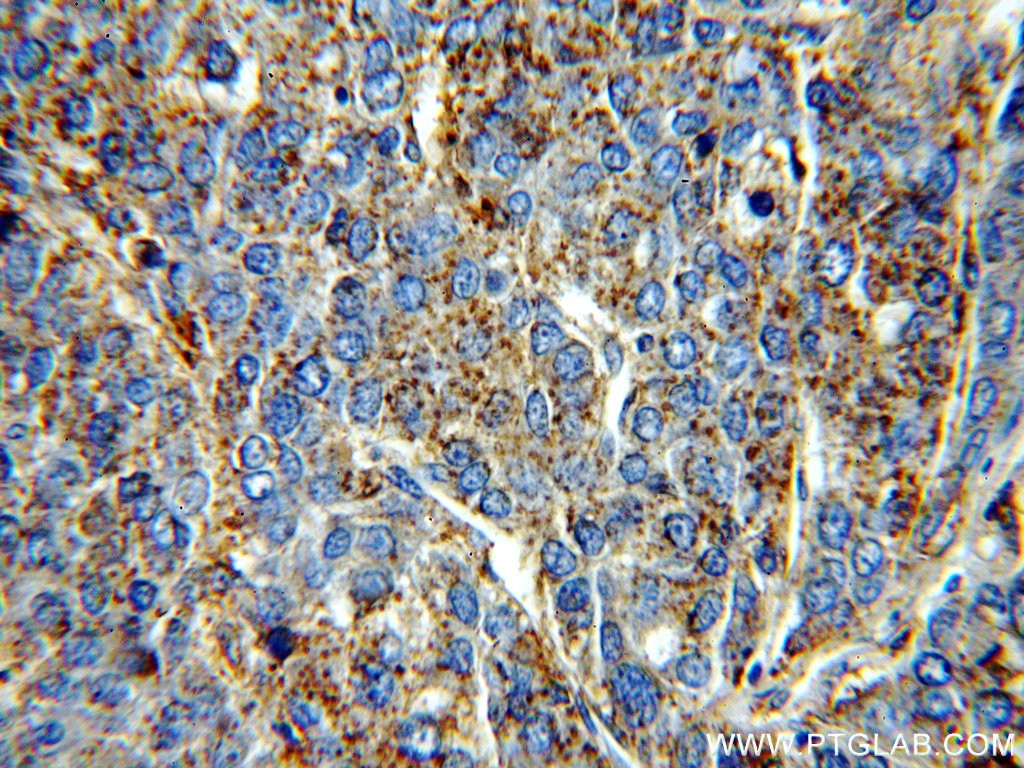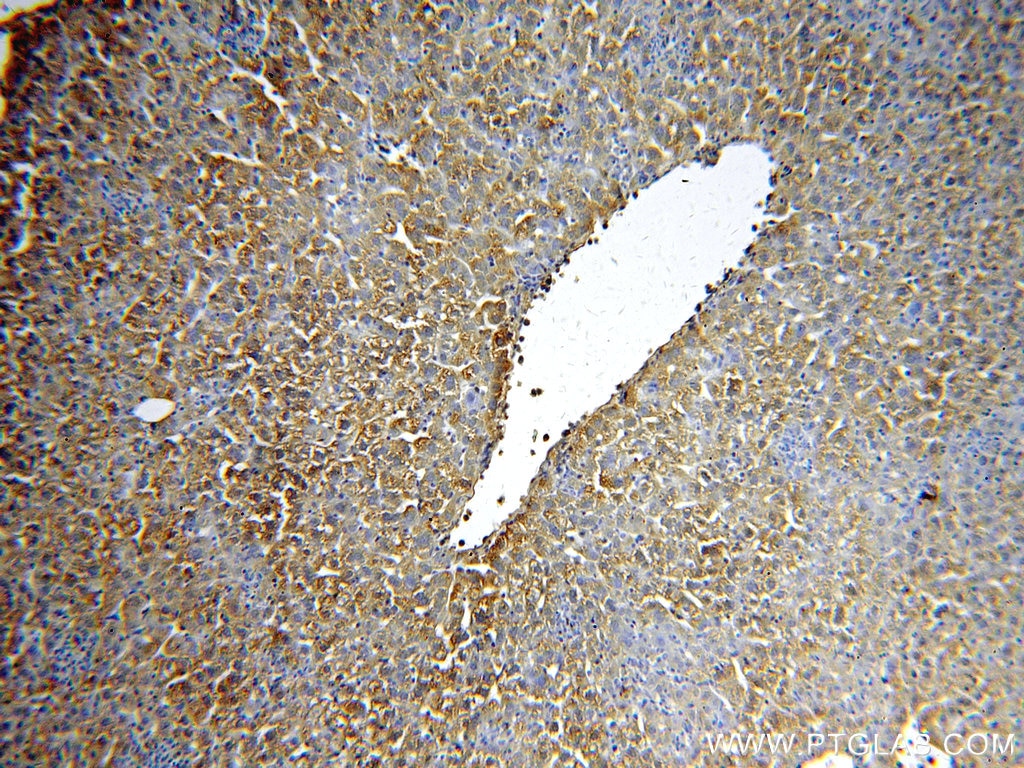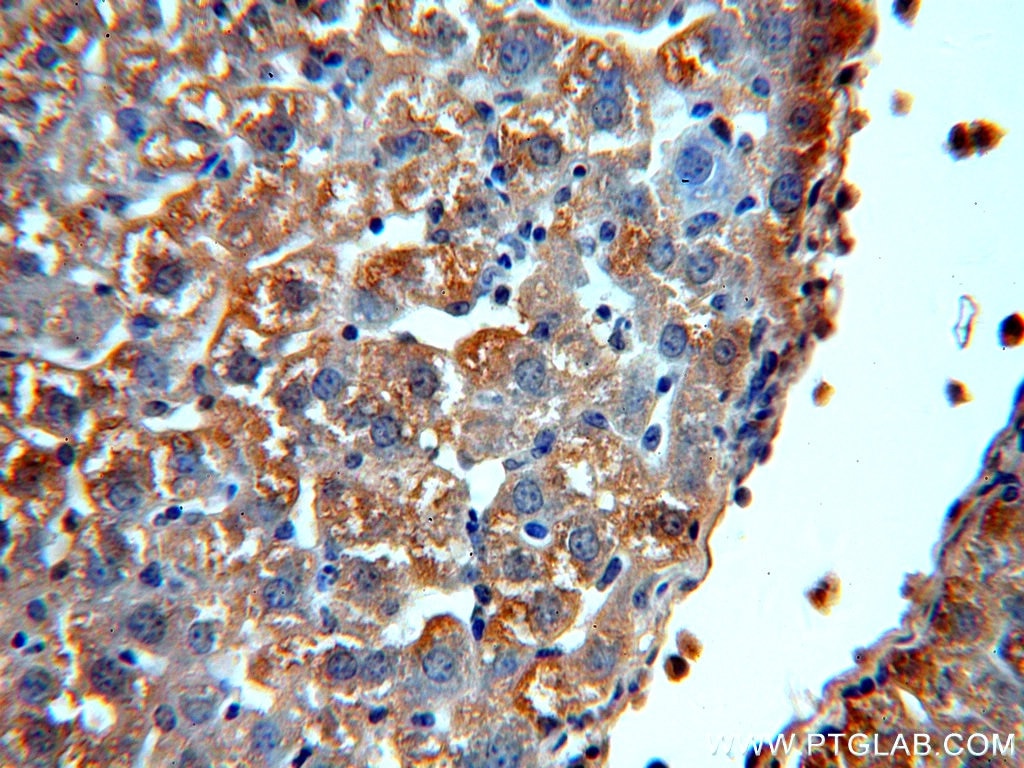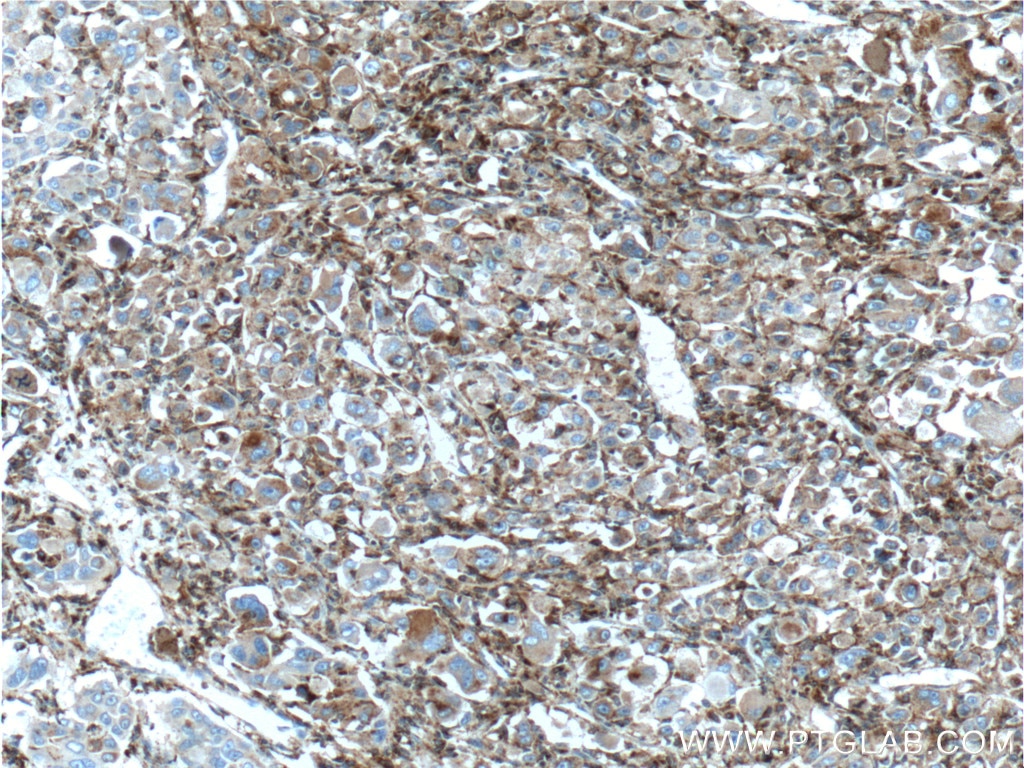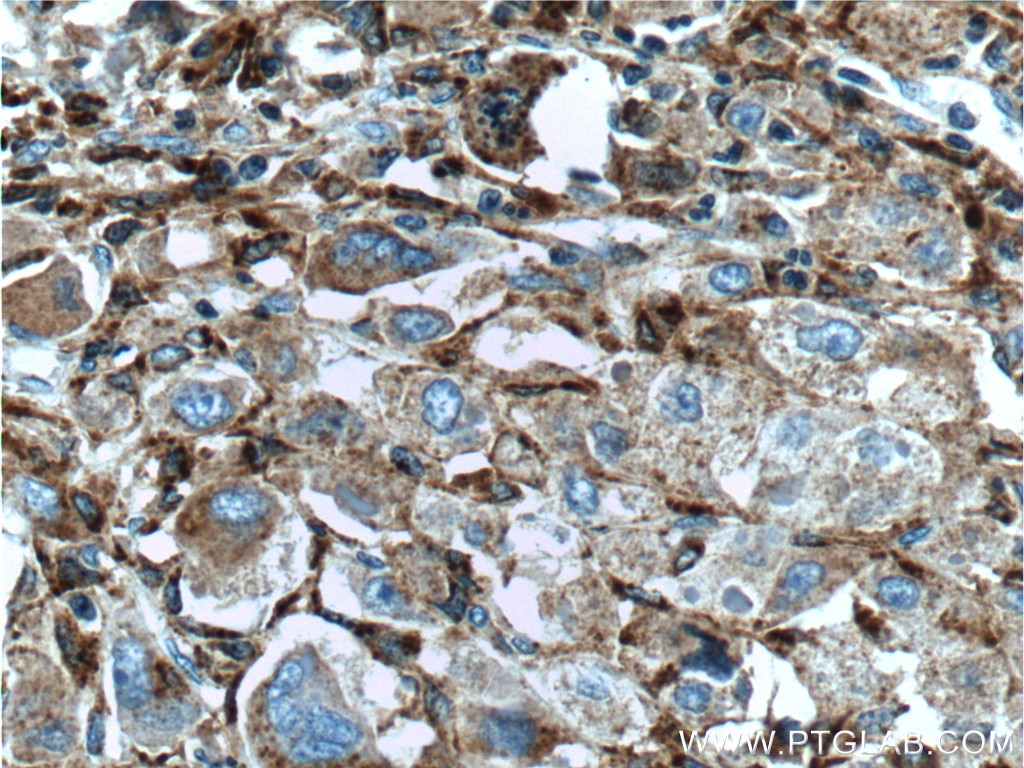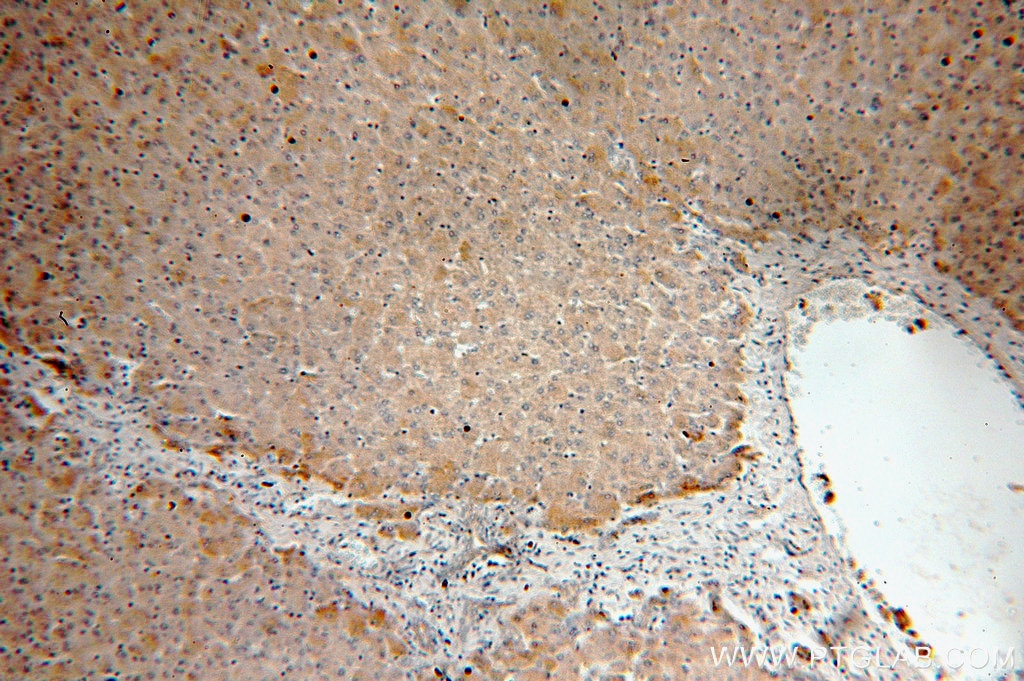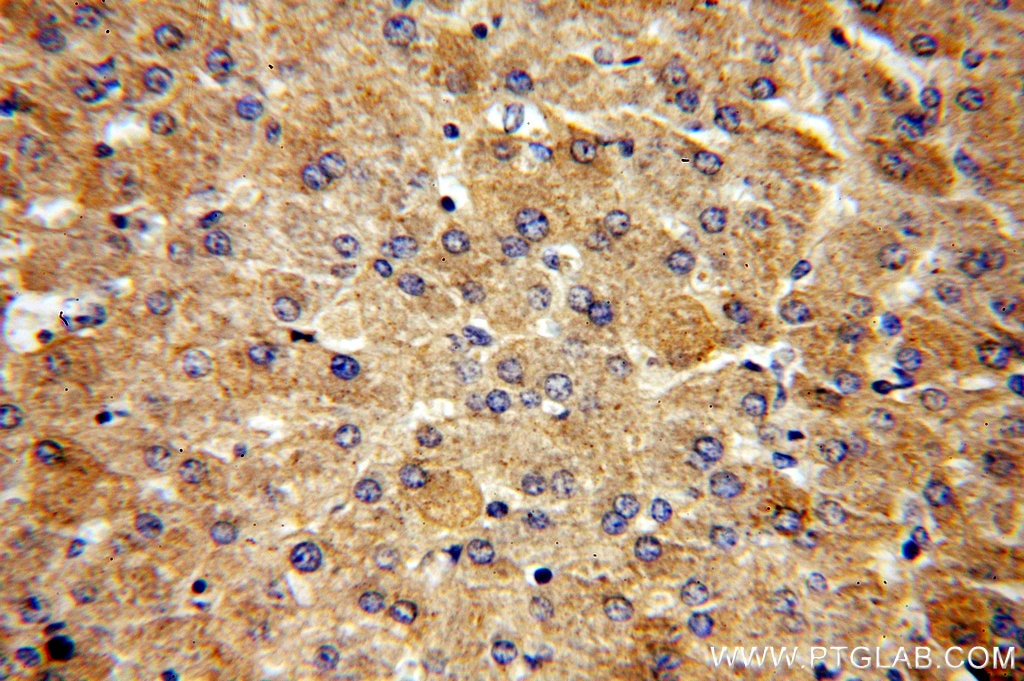Validation Data Gallery
Tested Applications
| Positive WB detected in | MCF-7 cells, HEK-293 cells, HeLa cells |
| Positive IP detected in | HEK-293 cells |
| Positive IHC detected in | human liver cancer tissue, human liver tissue, mouse liver tissue Note: suggested antigen retrieval with TE buffer pH 9.0; (*) Alternatively, antigen retrieval may be performed with citrate buffer pH 6.0 |
Recommended dilution
| Application | Dilution |
|---|---|
| Western Blot (WB) | WB : 1:500-1:3000 |
| Immunoprecipitation (IP) | IP : 0.5-4.0 ug for 1.0-3.0 mg of total protein lysate |
| Immunohistochemistry (IHC) | IHC : 1:250-1:1000 |
| It is recommended that this reagent should be titrated in each testing system to obtain optimal results. | |
| Sample-dependent, Check data in validation data gallery. | |
Published Applications
| KD/KO | See 1 publications below |
| WB | See 1 publications below |
| IHC | See 1 publications below |
| IF | See 1 publications below |
Product Information
15428-1-AP targets Alpha Galactosidase A in WB, IHC, IF, IP, ELISA applications and shows reactivity with human, rat samples.
| Tested Reactivity | human, rat |
| Cited Reactivity | human, rat |
| Host / Isotype | Rabbit / IgG |
| Class | Polyclonal |
| Type | Antibody |
| Immunogen |
CatNo: Ag7609 Product name: Recombinant human GLA protein Source: e coli.-derived, PGEX-4T Tag: GST Domain: 81-425 aa of BC002689 Sequence: WKDAGYEYLCIDDCWMAPQRDSEGRLQADPQRFPHGIRQLANYVHSKGLKLGIYADVGNKTCAGFPGSFGYYDIDAQTFADWGVDLLKFDGCYCDSLENLADGYKHMSLALNRTGRSIVYSCEWPLYMWPFQKPNYTEIRQYCNHWRNFADIDDSWKSIKSILDWTSFNQERIVDVAGPGGWNDPDMLVIGNFGLSWNQQVTQMALWAIMAAPLFMSNDLRHISPQAKALLQDKDVIAINQDPLGKQGYQLRQGDNFEVWERPLSGLAWAVAMINRQEIGGPRSYTIAVASLGKGVACNPACFITQLLPVKRKLGFYEWTSRLRSHINPTGTVLLQLENTMQMSL 相同性解析による交差性が予測される生物種 |
| Full Name | galactosidase, alpha |
| Calculated molecular weight | 49 kDa |
| Observed molecular weight | 46-50 kDa |
| GenBank accession number | BC002689 |
| Gene Symbol | GLA |
| Gene ID (NCBI) | 2717 |
| RRID | AB_10638002 |
| Conjugate | Unconjugated |
| Form | |
| Form | Liquid |
| Purification Method | Antigen affinity purification |
| UNIPROT ID | P06280 |
| Storage Buffer | PBS with 0.02% sodium azide and 50% glycerol{{ptg:BufferTemp}}7.3 |
| Storage Conditions | Store at -20°C. Stable for one year after shipment. Aliquoting is unnecessary for -20oC storage. |
Background Information
GLA (Alpha-galactosidase A), also named as Melibiase or Agalsidase, belongs to the glycosyl hydrolase 27 family. It catalyzes the hydrolysis of terminal, non-reducing alpha-D-galactose residues in alpha-D-galactosides, including galactose oligosaccharides, galactomannans and galactolipids. The deficient activity of GLA can cause Fabry disease which is an X-linked inborn error of glycosphingolipid metabolis (PMID: 19287194). Enzyme replacement therapy (ERT) with GLA is currently the most effective therapeutic strategy for patients with Fabry disease (PMID: 20398385). In humans, GLA is synthesized as a 50 kDa precursor, which is further processed to a 46 kDa mature form of the protein (PMID: 9883849, 19387866). It also has a homodimer form with the molecular mass of 110 kDa (PMID: 17287429).
Protocols
| Product Specific Protocols | |
|---|---|
| IHC protocol for Alpha Galactosidase A antibody 15428-1-AP | Download protocol |
| IP protocol for Alpha Galactosidase A antibody 15428-1-AP | Download protocol |
| WB protocol for Alpha Galactosidase A antibody 15428-1-AP | Download protocol |
| Standard Protocols | |
|---|---|
| Click here to view our Standard Protocols |
Publications
| Species | Application | Title |
|---|---|---|
J Extracell Vesicles Extracellular vesicles from recombinant cell factories improve the activity and efficacy of enzymes defective in lysosomal storage disorders.
| ||
Orphanet J Rare Dis Deep characterization of the anti-drug antibodies developed in Fabry disease patients, a prospective analysis from the French multicenter cohort FFABRY. | ||
Adv Mater Sequential Targeted Enzyme-Instructed Self-Assembly Supramolecular Nanofibers to Attenuate Intervertebral Disc Degeneration |

